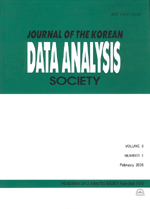수직적 통합이 영업성과에 미치는 영향에 대한 실증분석
How did vertical integration affect the companies’s operating performance?
- 한국자료분석학회
- Journal of The Korean Data Analysis Society (JKDAS)
- Vol.12 No.3
-
2010.061597 - 1607 (11 pages)
- 123

본 연구는 D’Aveni & Ravenscraft(1994)의 연구에 기초하여 수직적 통합의 정도가 영업성과에 미친 영향을 분석하였다. 이를 위해 1987년에서 2007년까지 외부감사대상 기업의 자료를 활용하여 이를 분석하였다. 분석에서 수직적 통합은 계열기업간 내부거래로 파악하였다. 사업수익은 매출액에서 영업이익이 차지하는 비중으로 측정하고 사업비용은 매출액에서 매출원가, 광고비, 판매관리비, 일반관리비가 각각 차지하는 비중으로 측정하였다. 분석결과, 수직적 통합은 사업비용을 줄여 사업수익에 긍정적인 영향을 미쳤다. 전방통합은 매출원가를 증가시키거나 다른 비용을 감소시켜 영업성과에 긍정적인 영향을 미치고 후방통합은 다른 비용은 증가하나 매출원가를 줄여 영업성과에 긍정적인 영향을 미친다. 이러한 연구결과는 D’Aveni & Ravenscraft(1994)에서 나타나지 않은 것으로 미국에 비하여 시장구조가 상대적으로 비효율적인 한국에서는 수직적 통합이 시장거래비용의 절감 등과 같은 다양한 경제적 혜택을 가져오는 의미 있는 전략적 대안일 수 있음을 제시한다.
This study examined how vertical integration affected the operating cost and profit based on D’Aveni & Ravenscraft(1994). Research sample was the statutory audited companies from 1987 to 2007. Vertical integration was defined as the sales to other affiliates. Operating income was defined as operating income to sales. Costs were defined as cost of goods sales, advertising, promotion and general affairs to sale. Market Share and Public were used as control variables. Vertical Integration decreased operating cost and increased operating income. Forward integration increased cost of goods sold but decreased market transaction cost, which finally gave the positive effect on operating income. Backward integration decreased cost of goods sold and finally gave the positive effect on operating income. On the other hand, Backward integration of public companies increased cost of goods sold and finally gave the negative. We could be doubt that corporate structure affect the decision of transfer pricing. The study showed the positive relation between vertical integration and profitability in contrast to D’Aveni & Ravenscraft(1994) which showed no relation. It reflected that the Korean industry structure was much less efficient than USA. Finally, vertical integration in Korea was the meaningful strategy to conquer the market inefficiency.
1. 서론
2. 이론적 배경 및 연구가설 설정
3.연구방법
4. 분석결과
5.결론
참고문헌
(0)
(0)